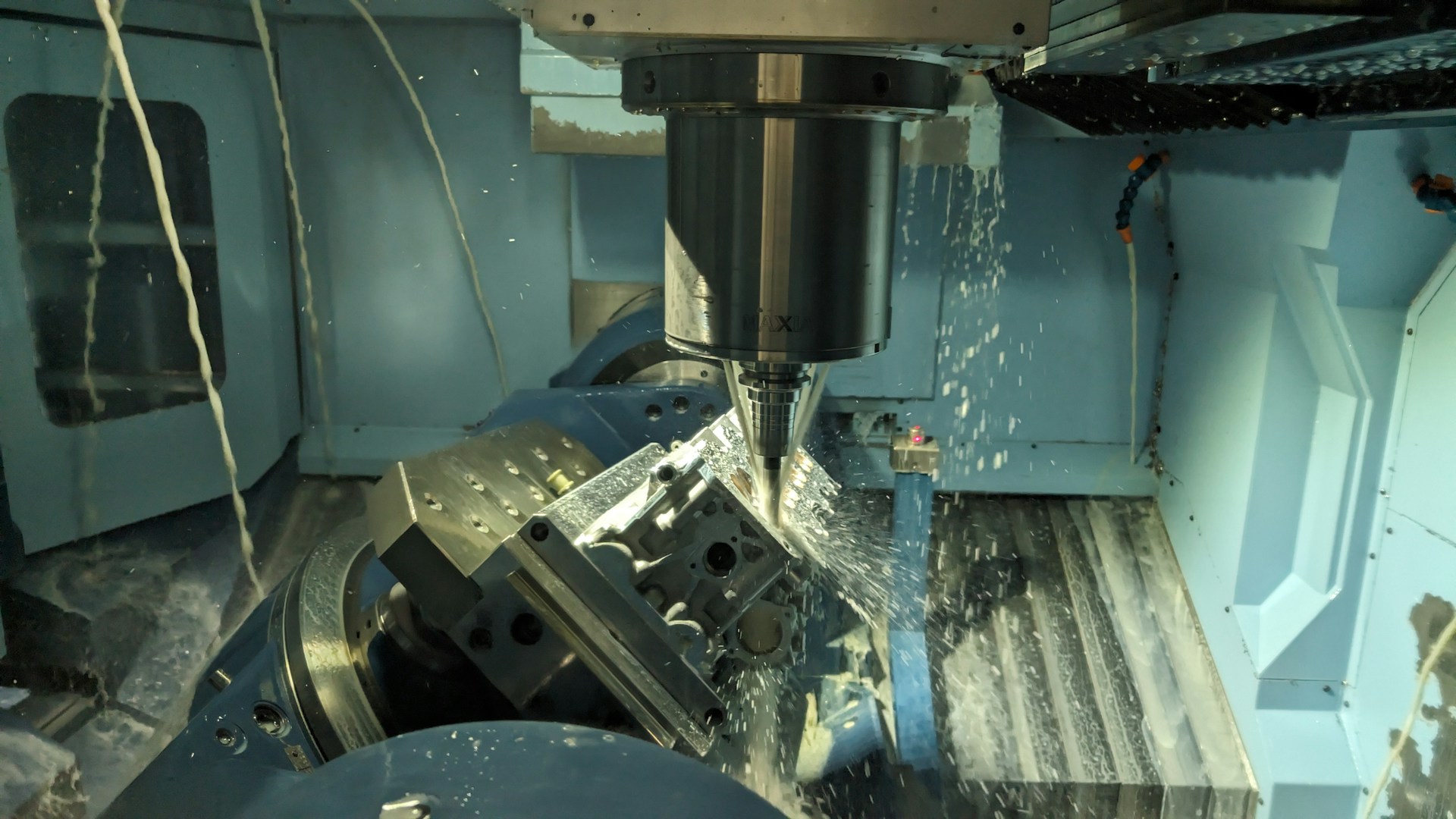Machining is one of the key processes used in industry to shape materials. It involves removing material from the surface of an object with a cutting tool to give it the desired shape, dimension, and surface quality. This process is extremely precise, making it widely used in producing machine components, replacement parts, and elements for industries such as automotive, aerospace, and medical.
What is Machining?
Machining is a type of mechanical processing in which material is removed through a cutting process. A cutting tool (such as a lathe tool, mill, or drill) removes chips from the surface of the workpiece, forming a product with the required shape and dimensions. The essence of this process is using the right tool and machining parameters to ensure high precision and repeatability in production.
How Does the Machining Process Work?
The machining process includes several stages to produce a finished element. Key steps include:
- Material Selection – Based on project requirements, such as strength or corrosion resistance, a suitable material is selected. This could be steel, aluminum, copper, plastics, or other metals and alloys.
- Preparation of the Cutting Tool – Depending on the shape and material of the workpiece, the appropriate tool is chosen to enable efficient material removal.
- Setting Machining Parameters – An essential element of the process is selecting appropriate machining parameters, such as rotational speed, feed rate, and cutting depth. These factors influence surface quality, machining time, and tool life.
- Actual Machining – This stage involves the physical removal of excess material using cutting tools. It may involve processes like turning, milling, or drilling.
- Quality Control – After machining, the finished component undergoes quality control. Parameters like dimensions, shape, and surface quality are verified to ensure they meet all technical requirements.
Types of Machining
There are many types of machining, which differ in techniques and tools used. The most important include:
- Turning – In this process, the workpiece rotates around its axis while the cutting tool moves along the material. Turning is commonly used to produce cylindrical components, such as shafts, bushings, and pins.
- Milling – This involves moving the cutting tool (mill) over the surface of a stationary material. Milling allows for processing flat and complex shapes, including grooves, gear teeth, and holes.
- Drilling – Drilling is the process of creating holes of a specified diameter and depth in a material using a drill.
- Threading – A specialized machining type for creating internal or external threads, used in manufacturing connecting elements like screws and nuts.
CNC Machining – Automating the Cutting Process
CNC machining (Computer Numerical Control) is a technology that has significantly enhanced cutting processes. CNC machines are computer-controlled, allowing precise control of parameters such as speed, feed rate, and tool position. CNC machines can therefore produce very complex shapes with high accuracy and repeatability.
Using CNC machining optimizes production, minimizes errors, and increases efficiency. CNC machine programming is a key stage in which operators define tool paths and process parameters, enabling the automated production of components with very complex shapes.
Materials Used in Machining
Material selection is one of the crucial factors affecting the effectiveness and quality of machining. Common materials include:
- Steel and Alloys – Very popular due to their high strength and availability in various grades that can be tailored to production needs.
- Aluminum – Valued for its lightness and corrosion resistance, often used in the aerospace and automotive industries.
- Copper and Brass – Materials with good thermal and electrical conductivity, used in the production of electrical and hydraulic components.
- Plastics – Various plastics are used for less stressed technical components, offering lightness and corrosion resistance.
Machining of Components – Key to Precision in Industry
Machining is essential for producing highly precise components, such as machine parts, industrial equipment components, and electronics. Precision machining allows for tight dimensional tolerances, which is especially important in high-quality industries like medicine, aerospace, and electronics.
Propart Sp. z o.o. – A Specialist in Machining Services
Propart Sp. z o.o. is a company specializing in professional machining services for clients across different industries. With a modern machine park, including CNC machines, Propart offers comprehensive machining services, including turning, milling, drilling, and other cutting techniques. The company focuses on the precise production of components that meet high-quality standards, making it a reliable production partner. Thanks to its experience and advanced technology, Propart Sp. z o.o. guarantees products that meet the highest technical requirements.
Source: Sponsored Content
